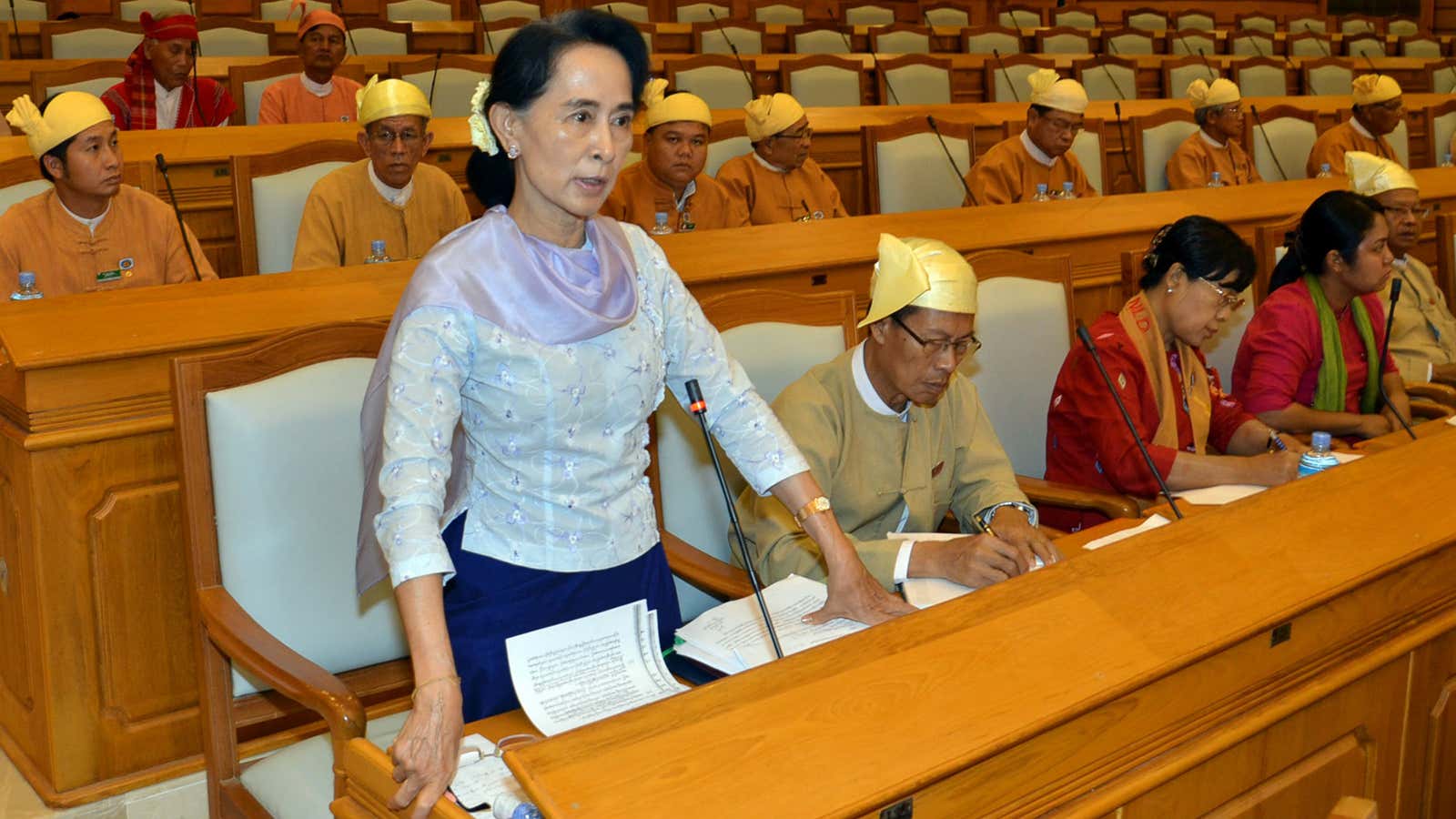Nobel Peace Prize winner Aung San Suu Kyi has been conspicuously quiet during Myanmar’s worsening ethnic crisis, as violent Buddhist-on-Muslim riots killed hundreds of people, the country’s Rohingya Muslims were forced into refugee camps, and Buddhist families from Bangladesh were resettled in the Rohingya’s abandoned neighborhoods.
On Monday Suu Kyi finally broke her silence, denouncing a plan by western Myanmar officials to reinstate a two-child limit on Rohingya Muslim families, formerly in place during the long decades of military rule. Buddhist families are not subject to the rule. “That kind of discrimination is illegal. It’s not in accordance with human rights,” Suu Kyi said.
She was elected to Parliament in 2012 after years of house arrest under the military junta that ruled Myanmar, also known as Burma, that turned her into a human rights icon. But as she prepares for a possible presidential run in 2015, she has drawn international fire for her failure to speak out against the abuses committed against the ethnic minority Rohingyas, whom many Burmese consider to be illegal immigrants from neighboring Bangladesh rather than fellow citizens.
As Buddhist-on-Muslim violence mounted in late 2012, Suu Kyi called it a “huge international tragedy,” but also said: “Don’t forget that violence has been committed by both sides. This is why I prefer not to take sides.” Her spokesman has questioned whether the Rohingya ethnic group even exists.
The two-child-per-family rule—with its ominous implications of ethnic cleansing—seems to have finally moved her to speak out. She also used it as an opportunity to criticize the President Thein Sein’s government for failing to move quickly enough on establishing the rule of law, saying that “only a desire for change is not enough.”
That’s a good line from a politician, which is now clearly Suu Kyi’s primary role. But fulfilling the ideals of the Nobel Peace Prize will require a much stronger stance—even if it might cost a future presidential candidate some much-needed votes.
